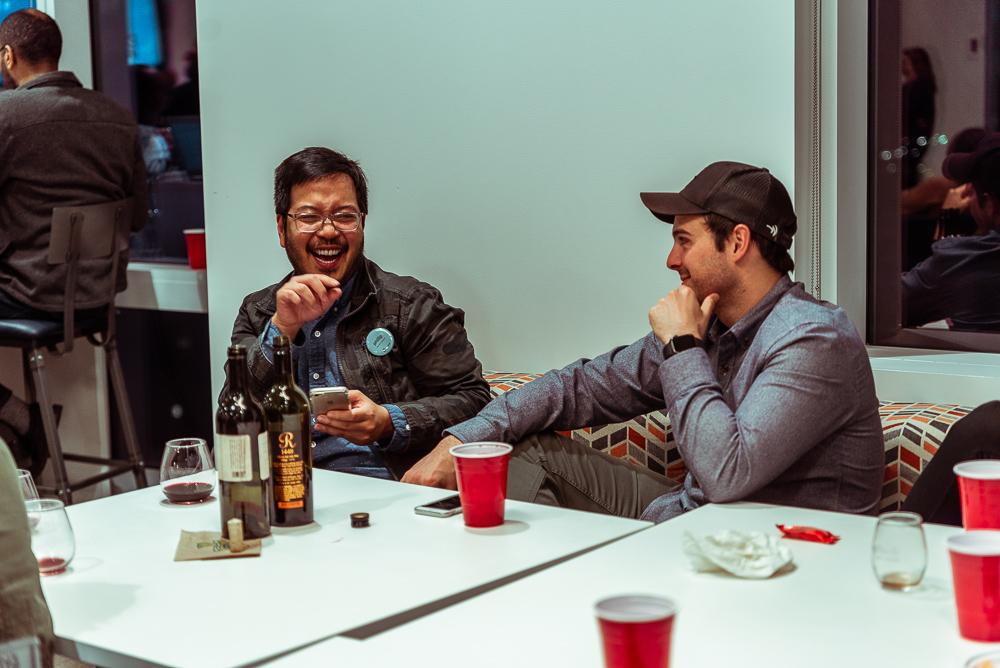The thought will inevitably cross your mind at some point. You’ll find yourself meticulously sketching a logo, designing a presentation deck, or comping up a print ad when out of nowhere you wonder—what does the future of design look like? Will I be doing this 5 years from now? Especially in the changing design and advertising climate, I think you’d be lying if you said you didn’t wonder if the work you’re doing now will still be in practice and relevant, 10, 5, even 1 year from now.
To think these thoughts and wonder these wonders is completely normal and justified—in fact, we’d be worried if you weren’t. And because so many of us are asking the same questions, we thought it was about darn time we sat down and talked through some possible answers. So we hosted a panel on design futures.
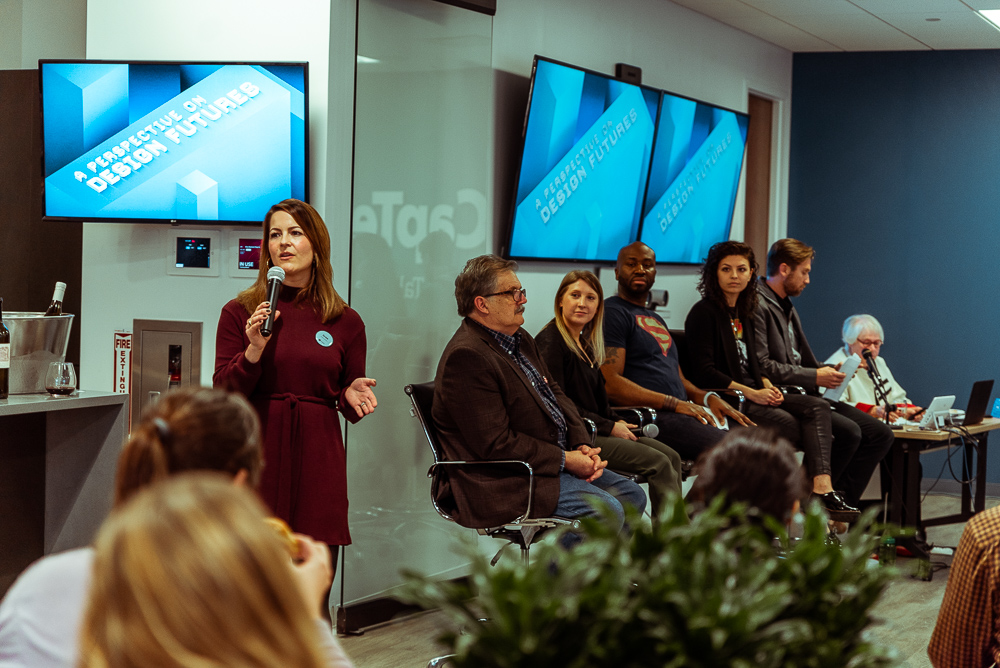
Our Design Futures panel was based on the briefing paper, AIGA Design Futures, from Meredith Davis of AIGA Design (she also moderated the panel!), and gave Charlotte-area creatives the chance to come together with leaders in the design community—Ron Edelen (Engagement Director), Samantha Shaibani (UX Strategist), Kenn Compton (Program Chair, Advertising + Graphic Design), Shannon Flowerday (Art Director), Jay Johnson (Interaction Designer), to discuss, dream, and hypothesize what the future of our field looks like.
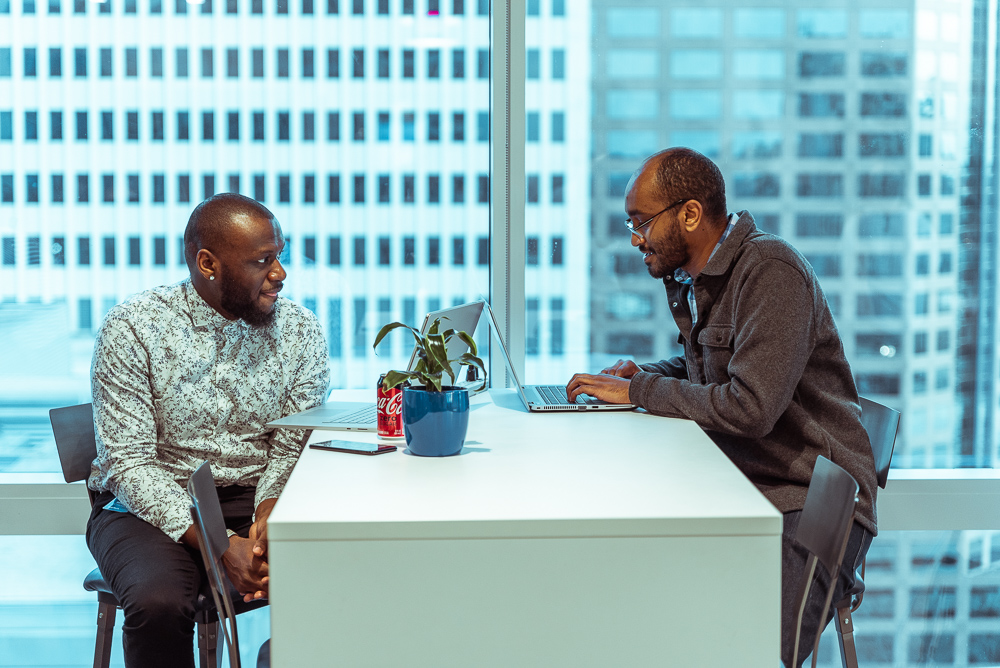
While the conversation spanned from the shift in designs systems to the importance of student internships (and far beyond), we pulled some key insights, pieces of advice, and future projections from the talk that we found to be most helpful to all of you, regardless of the path you’re on now, or the one you’ll be going down tomorrow.
So take a seat and take a look into the future, we have a feeling it’s going to be an interesting place to live, work, and create.
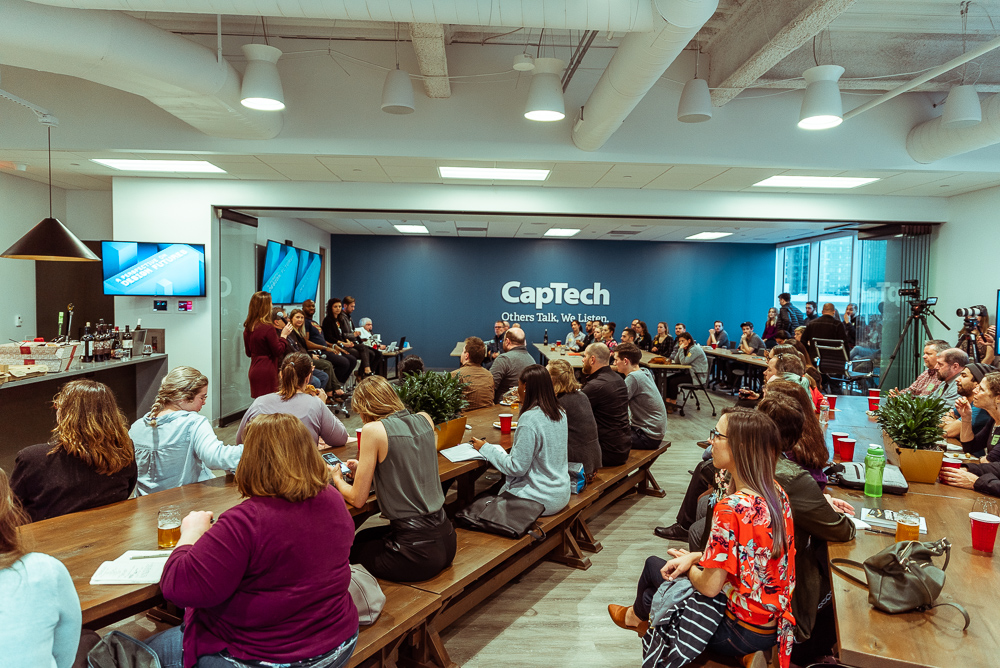
IN THE FUTURE OF DESIGN…
- A shift is inevitable, in fact, you’re probably noticing it now—from colors and type to buttons and forms and module. The scale is increasing, which means designers must think about a consider more aspects of design than ever before.
- Soft skills are more important than ever. To collaborate and work together in the changing working climate is an integral part of the job. You must understand how to work with all different types of people in different roles—which means you must be able to speak the same language as your team. That doesn’t mean you must learn to code to speak to a coder, but you do have to learn to speak the language of someone that does.
- The best UX-ers are data-informed and not data-driven.
- Your designs will ebb and flow—they will still be living and breathing beyond your time with them.
- Don’t think you need to completely ditch the basics—you still need to know them to move forward.
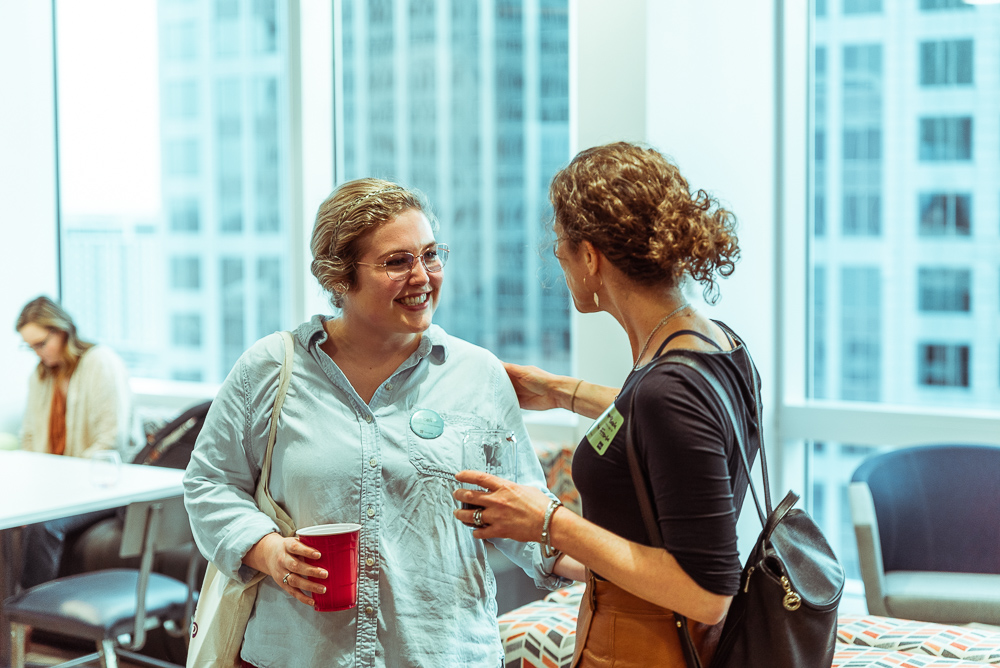
- Lazy bums this one’s for you! It is crucial to be self-motivated. The future of the workplace is remote—so there’s a big chance your team won’t be in the office next to you, your boss won’t be looking at your screen over your shoulder, and your account director won’t be there to remind you of due dates. You must be able to hold yourself accountable.
- Piggybacking off the point above—This almost seems like a skill that would be more important 10 years ago, rather than 10 years from now, but here we are. You must be able to clearly communicate over the phone. (cue the “eeeeeks”)
- Design thinking is all about empathy—bring it into every piece of work you do.
- Design disruption is inevitable. Your designs will not stay precious—get used to the idea that others will collaborate and working on your design with you in real time. There’s a good chance nothing will be solely yours anymore.
- Students—don’t leave school without an internship. Trust us on that.
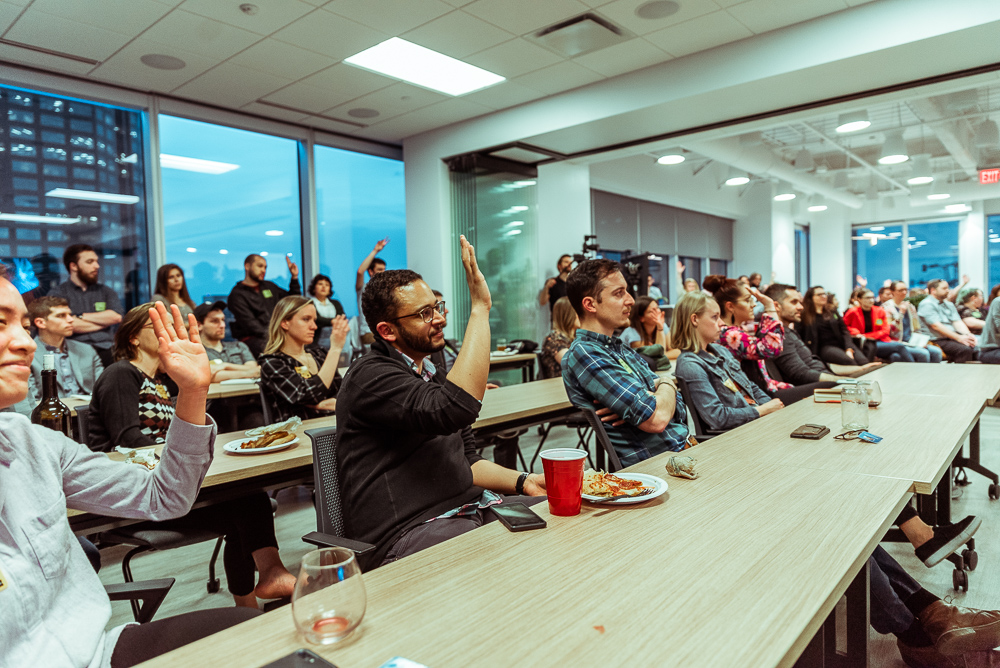
- As jobs evolve it is key that you learn to leverage your previous experience to fit a new and different type of job, and you must know how to talk through it in a way that positions you better for it. It’s all about taking what you know now and modifying it to prepare you for what’s to come.
- It’s time we stop making things and start making services.
- Designers must also be problem solvers and curators—of information and opportunities.
- It is crucial you learn to defend your work objectively and be unafraid to tear it apart with research.
- The future is computational design. Soon what is “good” design will be decided by the purchaser/computer.
- Design belongs to people who are lifelong learners. Don’t. Stop. Learning. (And believing).
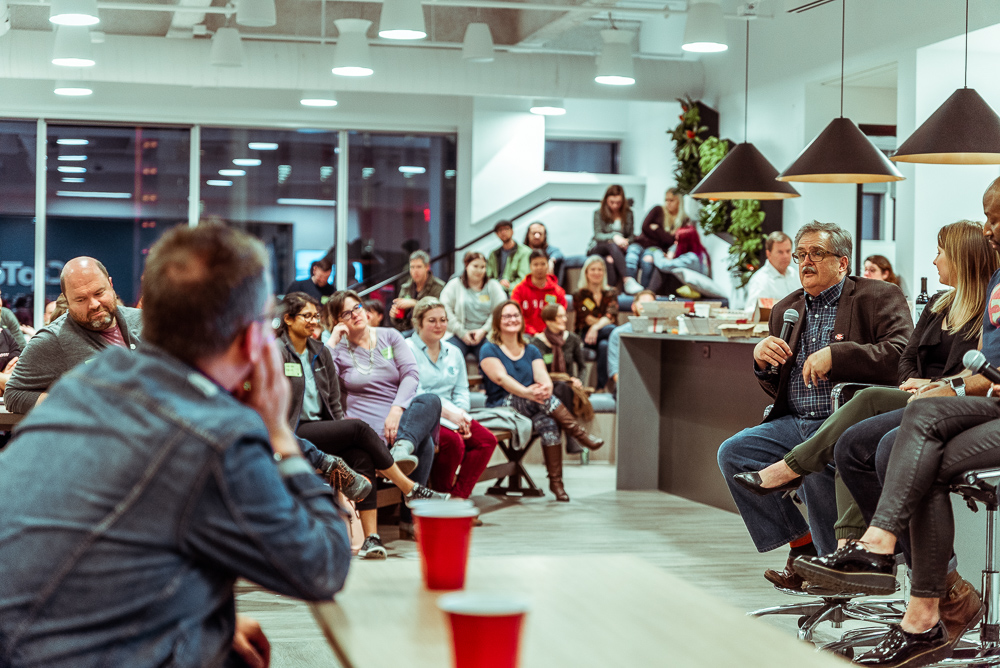
We can’t thank our amazing panel enough for taking the time out of their busy schedules to share their knowledge with us. This event truly wouldn’t have been possible without the help of our amazing sponsors: CapTech, Metrographics, the Dunhill Hotel, Advent Coworking, and The Creative Group. Cheers to the future of design, may it be fruitful for us all!
